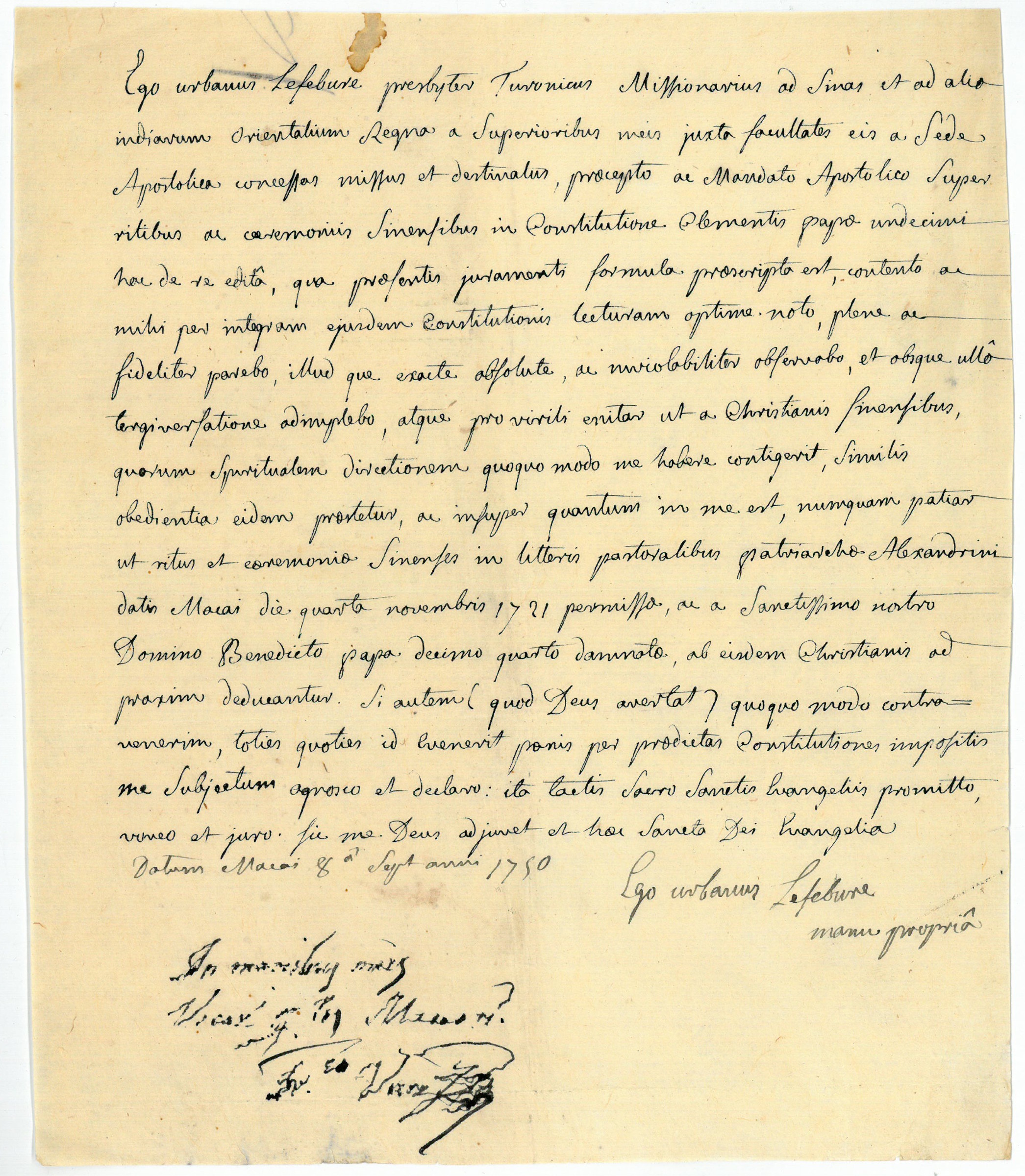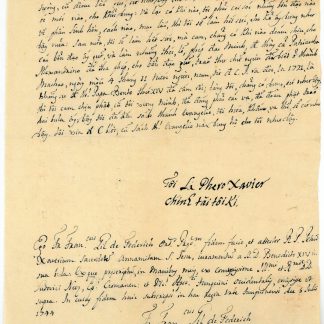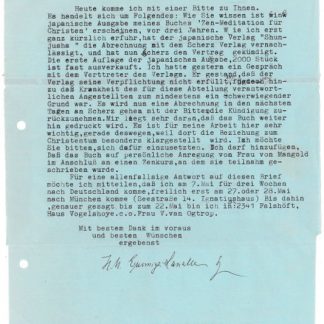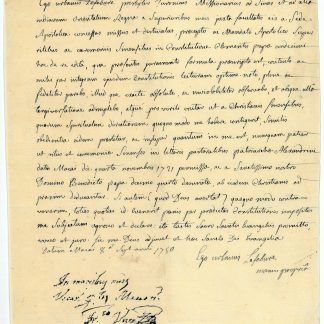A French China missionary and victim of the French Revolution
Autograph document signed.
4to. 1 p. In Latin.
€ 3.500,00
An oath renouncing the practice of the Chinese rites, taken by the prominent member of the Paris Foreign Missions Society (M.E.P.) as required by the Papal Bull "Ex Quo Singulari" (1742). The oath was sworn on the Bible, and a signed autograph ("manu propria") of the formula had to be produced as evidence. Most of these documents are co-signed by church officials or superior friars as witnesses to an oath sworn in their presence ("in manibus meis"), in this case an unidentified vicar residing in Macau.
Born in Tours, Urbain Lefebvre entered the M.E.P. during his deaconate in 1749 and was ordained priest in 1750. By the end of that year, Lefbvre reached Macau. There, he met the exiled Vicar Apostolic for Cochinchina, Armand-François Lefebvre, who suggested to join the mission in Cambodia. However, Lefebvre remained in Macau until 1754, when he joined the mission in Sichuan. He worked alongside the Chinese priest Andrew Ly (1692-1774), famous for his Latin diary, and they were eventually arrested together. Lefebvre was forced to return to Macau, arriving in early 1755. Until 1758 he was active as a missionary in Siam. Lefebvre returned to Europe in 1763 via La Réunion and worked as a chaplain at the Parisian convent of the Hospitalières de Notre-Dame de la Miséricorde. In 1791 he was among the so-called refractory or non-juring clerics who refused to take an oath of loyalty to the nation and the republic before municipal officials. On 27 May 1792, the Legislative Assembly decreed the deportation of the refractory clerics, and the former monastery of the Carmelites was to serve as an interim prison. On 2 and 3 September, at the beginning of the so-called September Massacres, 191 clerics and other Roman Catholics were killed at the Carmes Prison. Along with the other victims, Urbain Lefebvre was beatified by Pope Pius XI in October 1926.
During the early years of their mission to East Asia, the Jesuits led by Matteo Ricci accommodated Catholicism to Chinese customs and Confucian practice in important ways, both for political reasons and in the hope of attracting more converts. Criticism of this syncretism is as old as the Chinese rites themselves, and Ricci's direct successor Niccolò Longobardo attempted to change course, which led to his replacement as provincial. When Dominican and Franciscan missionaries entered China, they reported critically to Rome on the Jesuit practices. A first condemnation was decreed by Pope Clement XI in 1704 and confirmed in the 1715 Bull "Ex Illa Die". In "Ex Quo Singulari", Pope Benedict XIV re-affirmed "Ex Illa Die" and required all missionaries in East and South-East Asia to take the oath renouncing the practice of Chinese rites and similar accommodations to local beliefs and religious practice.
A transcription and translation of the document are available on request.






